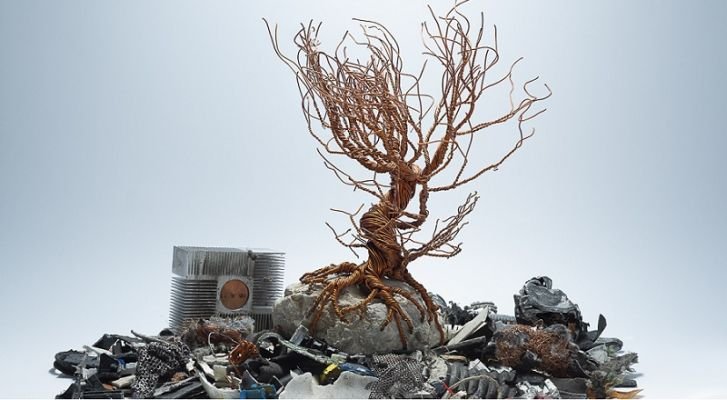According to the Global e-waste monitor 2020, 53.6 million tonnes (Mt) of electronic waste was generated globally in 2019, of which Asia was the largest contributor.

Not surprisingly, India is the third biggest contributor with 3.2 million tonnes.
India’s transition from a linear to a circular economic model prerequisites an urgent need to remove existing bottlenecks and evolve the domestic waste management system.
While India can boast of being the only country in Southern Asia to have a specific e-waste legislation in place since 2011, the e-waste recycling system has suffered long due to gaps in policy structure. The Indian e-waste landscape is still plagued with ambitious collection targets but ineffective implementation results.
With the presence of 312 authorized formal recycling facilities that have a treatment capacity of approximately 800 kilo tonnes (kt) of waste annually, and 31 authorized producer responsibility organizations (PROs) providing compliance services, the circuit is still run predominantly by the informal sector.

While EPR did prove to be an efficient strategy to garner greater seriousness among various stakeholders to comply with regulations, the lack of incentives has proven to be a deterrent.

The formal sector struggles with high costs and high collection targets. Further, private players, like those operating through PROs observe a limited role due to the low reliability factor of securing economies of scale in sourcing e-waste quantities in the formal sector.
The current landscape lacks the presence of economic instruments that promote as well as support the collection and processing system.
Involvement of financial incentives like a subsidy for producers to support collection and recycling processes, or for consumers to deposit e-waste at designated centers, or even direct funding of recyclers will help to reduce and perhaps remove the laid back attitude among different stakeholders groups of the waste management chain.
India should imply a complete ban on waste imports to prioritize domestic management before any ecological catastrophe hits us.
Reference- Center for Science and Environment (CSE) Report, Fortune India, Ministry Of Environment website, Statista






